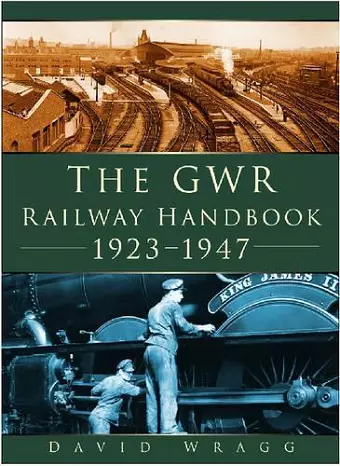The GWR Handbook 1923-1947
Format:Hardback
Publisher:The History Press Ltd
Published:2nd Feb '07
Currently unavailable, our supplier has not provided us a restock date

Uniquely among Britain's railways, the Great Western Railway retained its identity from the time of its incorporation in 1835 until nationalisation in 1948. This was one of the great railways, so much so that for some enthusiasts it was the railway, even attracting such epithets as 'God's Wonderful Railway' among the more dedicated. Even so, the amalgamations of 1923 saw the company absorb many smaller concerns, so that the post-grouping GWR was in some respects a different railway from that had grown up during the nineteenth and early twentieth centuries. The grouping saw the GWR absorb some significant concerns with strong, albeit local, networks. Fortunately the GWR dominated these companies to the extent that it was able to impose its will and identity on them, so that it was spared the infighting that so marred the new London Midland Scottish, or the regionalisation that left the London and North Eastern adrift, and simply did not paper over the cracks with some token changes as happened on the Southern. The GWR had suffered from an uneven performance during the early years of its history, and only really became the prestigious organisation that so many people came to love during the early twentieth century, setting speed records including the first, albeit unofficial, one of more than 100mph with the locomotive City of Truro. At one stage between the wars the GWR operated the world's fastest regular service with the express Cheltenham Flyer, while attempting to improve the efficiency and economics of the quieter branch lines with diesel railcars. Typically, it celebrated its centenary with special wide-bodied 'Centenary Riviera' carriages. "The Great Western Railway Handbook 1923-1947" looks at the history and achievements of one of the great railway companies, if not the greatest. For many, the GWR was synonymous with holidays by the sea in the West Country, but it was originally formed to link London and Bristol. The area and extent of its operations was large, extending as far north as Merseyside, providing most of the railway services in Wales, as well as being the main line to Cardiff, Bristol, Cornwall and, often forgotten today, Birmingham. The book begins with a brief history of the GWR before the grouping, and a survey of the other companies, such...
ISBN: 9780750942171
Dimensions: unknown
Weight: unknown
256 pages